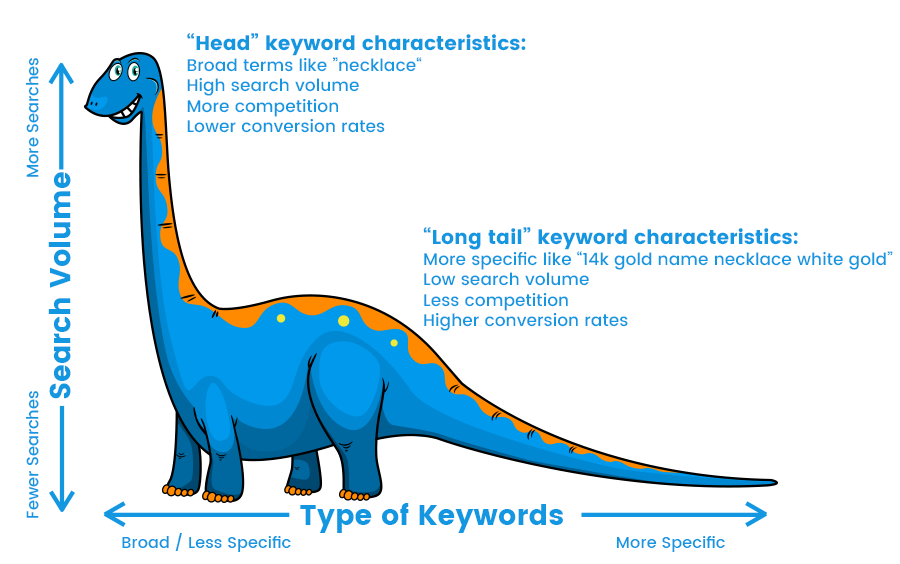Fundamental SEO Strategies for Travel Businesses
Author: Eycan Yagmur ARAS
Booking a hotel for travel or gathering information about the destination by walking to a travel agency has turned into a history. Most people prefer search engines such as Google and Yandex to create online booking or their travel routes. At this point, travel agencies or tourism companies that have a place in the digital world come into play.
Are you looking for increasing the traffic of your travel website or maybe growing your business and reaching more customers? Here is the perfect Travel SEO guide for you. 😎
![]()
Although SEO is not fast or easy, it is known as one of the marketing tools with the highest return on investment.
As you know, there is a lot of competition in the travel industry. Those who can market their travel companies well and gain new customers can make high profits. While the large online travel agencies spend large sums on marketing, the smaller ones focus on a narrower and more qualified audience.
Regardless of the size of your business, we have gathered the most necessary information here so that you can take action about SEO more easily.
According to a research, 93% of all web traffic is search engines. Travel SEO is the stage of creating and developing your travel site in the most efficient way, which attracts both travelers and search engines.
Before creating your Travel SEO, it's important to identify your customers' insights, interests, issues, and needs. Search engines are focused on finding customer-oriented results with all this data.
Why Do You Need SEO in Your Travel Website?
It is very difficult for your business to be visible in the digital environment without doing SEO work.
As we mentioned above, according to statistics, 95% of natural clicks come from the first page of google. Also, 75% of users never scroll down the first page of Google.
Online reservations increased by 78% thanks to travel SEO and customer experience became more important than anything else.
Although you have equipped your tourism website with attractive graphics, user-friendly interface, aesthetic font, fast loading and responsiveness, it is SEO that will make your website stand out at the right place at the right time.
What Are the Long-Term Benefits of SEO for Your Travel Business?

- Increase in your website traffic
- Improvement in your brand's visibility
- Increase in return on investment
- Ranking higher in similar search results
- Reduction in customer acquisition cost
- Contacting more potential customers
How Can You Use SEO for Your Travel Website?
1. Choose a Tourism-Related Domain Name
If you have just started to create your website, you may be wondering how to get a domain name. If the name you get is short, memorable, and related to the tourism & travel industry, it will be easier for users to find you quickly in search engines and to reach you again.
2. Focus on User Experience
It is very important to have a page that meets the expectations of users visiting your website. In order to improve the user experience, it is important that your site is functional and you have clear travel-related CTAs.
The tool that Google uses helps you understand what users are doing on your website and what stream they are browsing. You can use an application called RankBrain to observe how much time they spend on your website or their exit times. In this respect, it will be beneficial for your website traffic if you share tourism and travel content in different areas that will attract the attention of users.
3. Use Travel-Related Keywords
The keywords you choose are of great importance for your travel site to appear at the top of the search. You will not be able to attract the attention of users with random keywords. So, brainstorm what kind of keywords customers who are traveling or want to learn about online booking can use to search.
How do you know which words are best for you?
These two factors will guide you: Volume and cost-per-click (CPC).
Volume is the keyword's monthly search volume, and CPC is the price of the word or how much Google AdWords will be paid by auction.
If you focus on keywords with high search volume and low competition, you will rank faster.
Tip: Focus on a certain number of keywords and use them and synonyms. It's not good to suffocate your content by using too many keywords. What matters is quality.
4. Focus on Long-Tail Keywords

Use more the long-tail variants of a keyword about your travel page. In this way, it will be easier for you to come across the words that people are actually searching for. These long tails of at least 4 words make up 70% of all web searches, according to Neil Pate.
5. Use an Original Title Tag
Moz says: "Title tags are the second most important on-page factor for SEO, after content.”
That's why it's important that the tag is simple, clear and short. The title tag tells search engines like Google or Bing what your page is about, which in turn shows your identity. This is how your travel website is represented across all browsers and social media.
6. Have a SEO-Friendly URL

If your URL has more than 80 characters, you're more likely to rank low. Because the ideal is to use 50 characters.
Choose a URL that briefly and simply describes your name or content in the travel industry, without using prepositions or conjunctions. Avoid using too many keywords. A simple and easy URL will be extremely SEO friendly for your tourism website.
7. Use HTTPS & Have SSL
Google places great emphasis on security and the protection of personal information. Especially if your travel website has features such as online booking, it is very important that users feel safe to enter their card information. When you use HTTPS, users will know that they are safe because you will have an SSL certificate. Having an SSL certificate will definitely move you higher in search engines.
8. Create EAT Content for Your Pages

It is very important to Google that the content you have on your travel website is sufficiently reliable, expert and authoritative. The more honest and competent the information you convey to users, the more successful you will be. Google has published an EAT (Expertise, Authoritativeness, Trustworthiness) Guide for this and has made it mandatory to prepare the content accordingly.
If your website contains information that is unrelated to travel or tourism, repetitive, untrustworthy, damaging to content or false, Google will give you the lowest score and lower your ranking in the search results.
Creating unique, easy to follow, travel/tourism related, trustworthy content will help you to have higher rankings.
9. Use CTA in Your Description

Simply state in your description what users need to know about your travel website. Use long tail keywords and CTA words to get visitors to take action. (Book, get, save...) Put yourself in their shoes and think about what a visitor to a tourism site would like to see in the description.
10. Link Your Internal Pages
Connect pages that already exist on your travel site, so customers can easily navigate from one page to the next. In this way, you will make them more informed about your travel, reservation or services. Include pages that usually have a lot of traffic and increase the visit rate of your other pages.
11. Avoid Linking Bad Quality Websites

Do not link your tourism-oriented website to irrelevant websites. Only allow your link to be found on quality websites whose content you trust.
Also, you shouldn't share your link with websites penalized by Google. This may cause you to be dragged down by Google as well.
12. Make Your Website Mobile-Friendly
Today, most people carry their phones with them more than their computers because they find it more practical. If your travel website is not mobile-friendly and users need to open a computer to access your website, this can lead to a huge loss of customers for you.
13. Improve Your Website Speed

Having a high page speed allows users to stay on your page longer. If you want your travel content page to have more traffic, booking, usage and viewing, you should make it faster. Google determines your ranking by considering page speed.
According to BBC, consumers do not want to wait even 3 seconds to go to another site.
14. Frequently Check Google Analytics to Analyze Your Website
Analyzing your data and traffic using Google analytics will give you a unique benefit to improve your SEO. It is a simple to use, interface and completely free tool. By determining who your customers are, what they are interested in, which days they visit your site more, which travel content attracts more attention, you can take extremely efficient actions to improve your content and increase your traffic.
15. Be Aware of Your Competitors
In order to measure your own SEO, it can be beneficial for you to look at what your competitors are doing and which keywords they prefer. In this way, you can make positive changes to your travel website by looking at it from a different perspective.

Lexicon:
SEO for Travel Websites, Search Engine Optimization, Google Search Engine, Travel Business, SEO, Travel SEO, SEO-Friendly Websites, Content Marketing, Travel Industry SEO
References:
1. Arbnor (2020). Travel SEO Guide – Why Should Travel Companies Use SEO. [online] Tactica. Available at: https://seotactica.com/blog/travel-seo-guide/ [Accessed 8 Feb. 2022].
2. ColorWhistle. (2021). Travel SEO – A Definitive Guide for Online Travel Industry in 2021. [online] Available at: https://colorwhistle.com/travel-seo-guide/ [Accessed 8 Feb. 2022].
3. Travel SEO. (2019). 35 Actionable SEO Tips For Travel Websites. [online] Available at: https://travelseo.net/seo-tips-for-travel-websites/ [Accessed 8 Feb. 2022].
4. Green Flag Digital. (n.d.). 27 Travel SEO, Content Marketing & Digital PR Strategies. [online] Available at: https://greenflagdigital.com/travel-seo-marketing/ [Accessed 8 Feb. 2022].
5. Shares, 445 and Reads, 5 7k (2020). 3 Travel SEO Tips for Competing in Organic Search. [online] Search Engine Journal. Available at: https://www.searchenginejournal.com/travel-seo-competing-organic-search/340459/#close [Accessed 8 Feb. 2022].
6. Roland Krueger (2020). SEO for Travel Agency. [online] Available at: https://absolutebackpackers.com.au/business/seo-for-travel-agency/ [Accessed 9 Feb. 2022].
7. 314media. (2010). The SEO Marketing Plan. [online] Available at: https://www.314media.com/the-seo-marketing-plan/ [Accessed 9 Feb. 2022].


I'm really glad to know this information. Thank you HIGUYS
ReplyDeleteYou are most Welcome. :)
DeleteVery good and informative post. Really appreciated for your initiative to choose this topic in the blog because you have written everything in detail, it is essential to understand our clients' perspectives, preferences, problems, and demands. About all this data, search engines are focus on customer results. However, I realize paid SEO increases the visibility of website to consumers who use search engines like Google, Yahoo! Etc. It is correct that what have said that the Search Engine Optimization is a wide area its helps our business to grow up and improve clients. I appreciate your effort in explaining all the detailed aspect of SEO in a more understandable yet professional way, especially when it relates to a travel business.
ReplyDeleteExcellent information.
ReplyDeleteThank You.
Deletethank you for this helpful post !
ReplyDeleteHello, thank you very much
ReplyDeleteTotally agree, from reading your article I realize that the traditional way of travel industry is outdated, consumers really must move with the times and book various travel services online. At the same time, travel companies must follow the trend. Travel companies must also be excellent in increasing the traffic of travel websites, develop their business and attract more customers, make good use of the advantages of search engine SEO, and analyse and understand customers' insights, interests, problems, and problems. demand to predict future risk aversion. Thank you to the author for letting me know more about the advantages and disadvantages of SEO and how to operate SEO better. I will pay attention to this blog for a long time, and I hope that you will do better and better, so that more people can feel the power of knowledge.
This comment has been removed by the author.
ReplyDeleteThis comment has been removed by a blog administrator.
ReplyDeleteHey there,
ReplyDeleteI was relieved to find your blog informative as nowadays people usually depend on websites like Google, Yahoo and many more! SEO’s (Search Engine Optimization) People who travel a lot can benefit from these services the most. Travel industry has been benefited from a past decade because of these services as we no longer have to depend on the travel agencies anymore. I really appreciate your work. This post is really handy and useful, I am sure people will get help from this. I am looking forward to similar blogs on the tourism sector.
Keep up the good work
Thank you for this helpful post !